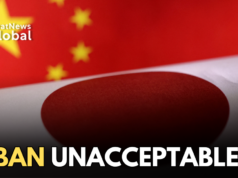While many in India may see the government’s decision to suspend the Indus Waters Treaty as no more than a slap on Pakistan’s wrist (since there is no infrastructure to stop water flowing into that country), a Dawn report dating back to Sept 2016, suggests Islamabad may resort to war.
It quoted former foreign affairs adviser Sartaj Aziz as telling the Senate that “The Indus Waters Treaty is quoted as perhaps the most successful water treaty ever conducted between two countries. It’s revocation can be taken as an act of war or a hostile act against Pakistan.”
“If India tries to interrupt water flow into Pakistan, it will not only violate the Indus Waters Treaty but also set a regional state practice under which international law can be served as a precedent. It will, for example, provide China justification to consider suspension of the waters of the Brahmaputra River,” Aziz had said.
Aziz may not have known that there is no water treaty between India and China, only an agreement to share data on water flows. Also, while the Brahmaputra originates near Kailash Mansarovar in Tibet, as much as 70% to 80% is contributed from within India, from the Lohit, Dibang, Subansiri and Manas rivers among others.
According to Dawn, Aziz told the Senate that Pakistan must watch out for attempts by India to “misuse” the provisions of the IWT “by constructing structures which are not allowed under the treaty”. He warned that Pakistan will “react befittingly” if India attempts to violate the IWT.
In a companion piece, Dawn went into the historical background of the treaty, and of the need for equitable sharing of the Indus waters. This was the point underscored by the World Bank experts even though it was clear that India with its larger land area and population would require more water.
The figures put out in the Dawn report tell a tale: the total water flow of the three rivers flowing into India (Ravi, Beas and Sutlej) was 32.3 million acre feet at that time. But the waters of the Jhelum and Chenab allocated for Pakistan was 45.8 million acre feet.
By insisting on equal sharing of waters, the World Bank did a disservice to India. Why India accepted such treatment is not clear.
Thirty eight years in journalism, widely travelled, history buff with a preference for Old Monk Rum. Current interest/focus spans China, Technology and Trade. Recent reads: Steven Colls Directorate S and Alexander Frater's Chasing the Monsoon. Netflix/Prime video junkie. Loves animal videos on Facebook. Reluctant tweeter.





